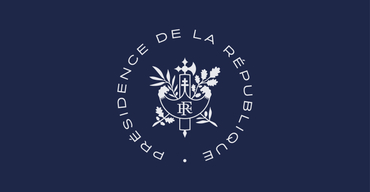With the death of economist and mathematician Marcel Boiteux, former Chair and CEO of Électricité de France (EDF), France has lost a great servant to the State, who designed the French nuclear programme and was a tireless contributor to France’s national sovereignty and outreach.
Born in Niort in 1922 to parents who attended the prestigious French schools of École normale supérieure and Polytechnique, Marcel Boiteux chose to join the ranks of the former school, even though he would later lead those from the latter. He graduated from the École normale supérieure in 1942 but his academic career was cut short. In 1943, to avoid Compulsory Work Service (STO), he crossed the Mediterranean to go to Morocco, secretly crossing the Spanish border via the Basque Country. After enlisting in the Army of Africa, he showed extraordinary courage in the Italian Campaign and then during the liberation of France — acts of bravery which earned him the Croix de Guerre.
After the war, Marcel Boiteux returned to his studies. Equally interested in the science of numbers and the art of administration, he successively passed the agrégation exam in mathematics in 1946 and received his degree from the Paris Institute of Political Studies in 1947. He then joined the French National Centre for Scientific Research (CNRS) and in 1949, the recently-nationalized EDF, upon the recommendation of his friend and mentor, the future Nobel Prize in Economics laureate Maurice Allais.
At EDF, where he remained for four decades, Marcel Boiteux rose through the ranks through his hard work, determination and theoretical brilliance. His constant concern for economic rationality became famous via his theory of public monopoly and an eponymous theorem, the Ramsey-Boiteux problem. This concern in particular was put into practice for the French people. Marcel Boiteux also invented the distinction between peak and off-peak rates which forms the basis for energy pricing, to which an entire chapter of President Carter’s National Energy Act was dedicated, which was adopted by the US Congress in 1978.
He became Chair of EDF in 1967 and for years had been promoting a shift towards “all nuclear” to the government, and the firm choice of enriched uranium and pressurized water reactors, which were safer and more competitive. The oil crisis reaffirmed that strategy, which was sped up by the Messmer Plan in 1974. Marcel Boiteux was thus in charge of rolling out the new French nuclear plants and he chose standardized models across the country, enabling economies of scale and maintenance and significantly facilitating delivery.
His staunch defence of nuclear power almost cost him his life, with an attack on his home in 1977. In the same year, he succeeded another creator of the strategic government, Paul Delouvrier, as CEO of EDF, and continued expanding and implementing his vision and ambitions for the nation over the following ten years. When he left the company in 1987, there were 58 nuclear power reactors in operation or under construction, representing a genuine technological, economic and human achievement.
“I have always been reluctant to undertake tasks unless, in one way or another, they contribute to the common good”, he wrote in his correspondence.
And throughout his life, he established himself as both an exceptional leader and a scientist whose authority was undisputed. He successfully chaired the Le Siècle think tank from 1972 to 1974, and the Pasteur Institute from 1973 to 1985, before joining the ranks of the Academy of Moral and Political Sciences in 1992, which he would chair ten years later.
With more than 50 scientific articles published, from 1959 he was President of the Econometric Society, succeeding Nobel Prize laureates Kenneth Arrow and Paul Samuelson. A few years later, in other duties at the head of the World Energy Council, he was once again able to work for his ideals.
The President of the French Republic and his wife pay tribute to a theoretician and practitioner for the common good, to a combatant who fought tirelessly for his country’s independence, to a strategist who changed the daily lives and mapped out the future of all French citizens. They extend their most sincere condolences to his family, friends and former colleagues.
Latest news
See all articles and topics-
18 November 2025 Achieving Europe’s Cloud and Data Sovereignty.

-
18 November 2025 Fairer Markets in Support of Digital Sovereignty.

-
18 November 2025 Simplification of the EU Digital Rulebook.

-
18 November 2025 Summit on European Digital Sovereignty Delivers Landmark Commitments for a more competitive and sovereign Europe.

